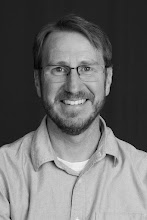Now that Briercrest's Christian Education in a Secular Age online conference has ended, I'm left with a lot of interesting ideas.
In one discussion, a presenter talked about using the terminology of human fruitfulness (connected to the fruit of the Spirit) rather than human flourishing. In another session, a contributor distinguished the role of technology as "acting upon" scientific discoveries. I found those to be a helpful distinctions.
The keynote speaker, Dr. Jens Zimmermann from Regent College, discussed the challenge and promise of Christian humanism. He addressed the concept of "personhood" as originating from the Christian doctrine of the Trinity. His talk touched on the origins of Paideia education and how it became Christianized. The heart of his paper highlighted the danger of what he calls the techno-scientific vision, a way of coming to understand the world exclusively through scientific approaches and measurements. Zimmermann suggests the t-s vision downplays personhood--with its emphasis on understanding and knowing creation through embodied experiences, such as smells, sights, sounds, tastes, and feeling and their expressions and interpretations. These subjective ways of experiencing and describing the world are at the heart an education in the humanities, which is becoming increasingly marginalized in mainstream education, at least in Canada.
As someone interested in what online theological education is doing to human being(s), these issues are important to keep in mind. The pandemic resulted in us choosing or being told to remove ourselves from direct encounters with others, thereby limiting the fullness of our humanity. Embracing and being embraced by another, feeling the breeze of their movements, tasting the same food as and with them, and seeing, not just their face on a screen, but their way of being human / human being in the world, are vital to our knowledge of what it is to be human. Over time, when we miss out on opportunities to be in the physical presence of others and we miss out on embodied interactions, I think our humanity diminishes.






